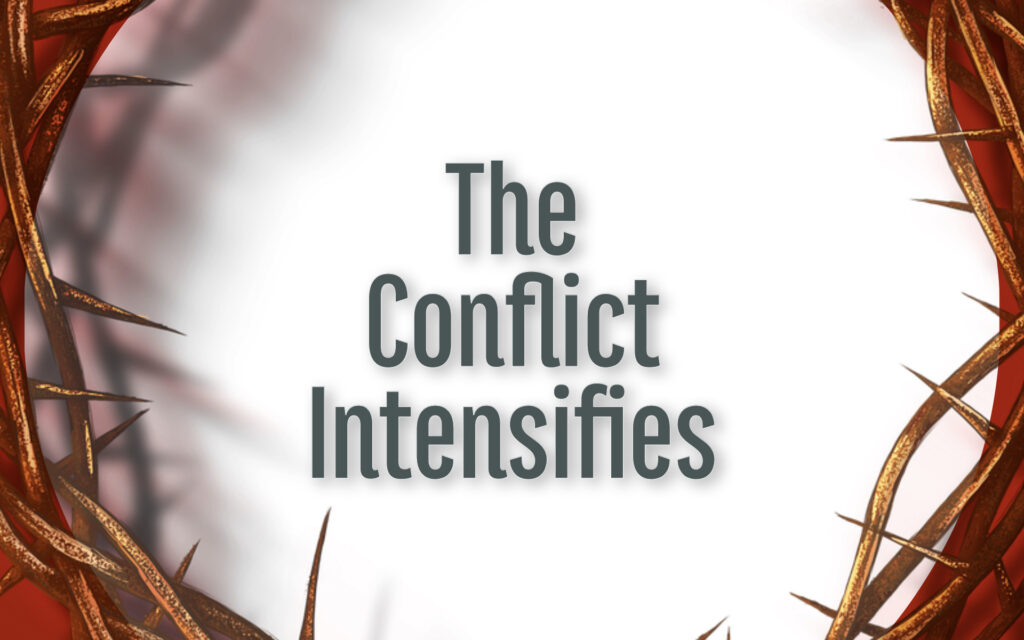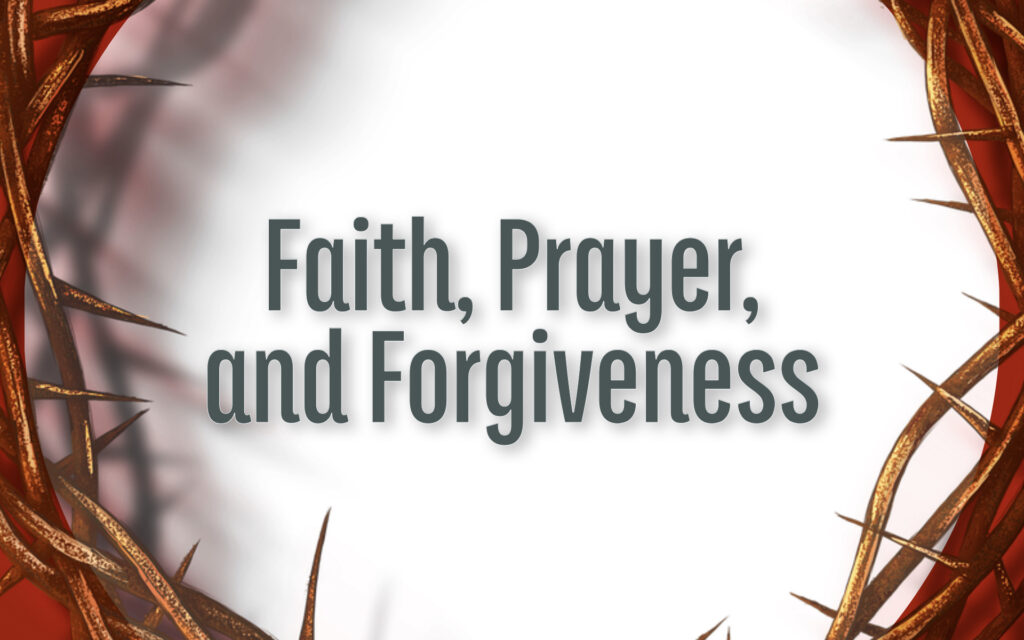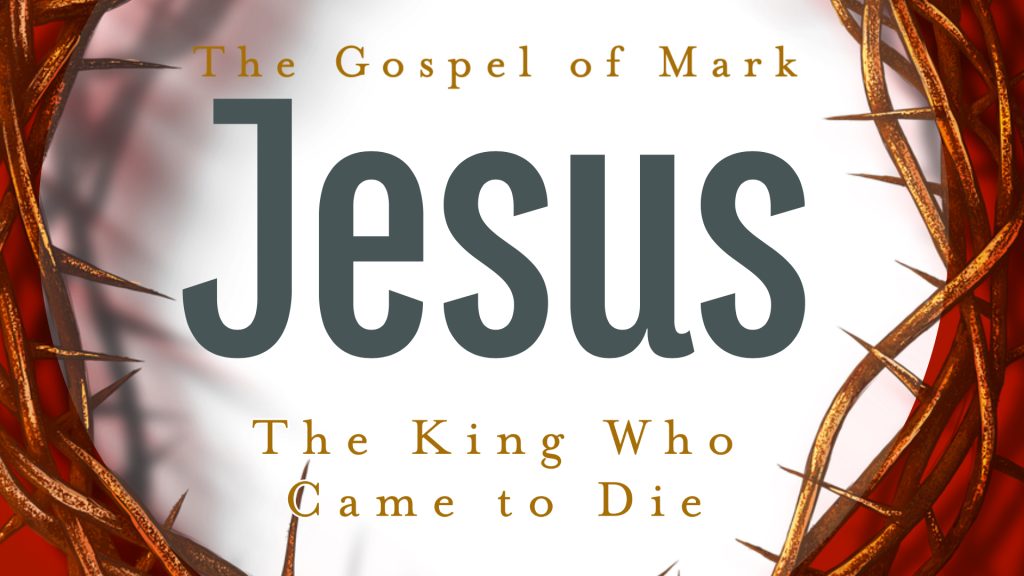Jesus’ teaching, actions, and authority consistently caused amazement among the people, but they also prompted fear and opposition, especially among the leaders, and this pattern intensified as Jesus ministered in Jerusalem during His final week.
Mark 11:27-33
Read More
The fruit of true worship in the New Covenant that God desires is faith, prayer, and forgiveness.
Mark 11:20-25
Read More
Like the fig tree, the Temple was utterly barren of fruit and Jesus pronounced it to be dead, never to bear the fruit of true worship of God again.
Mark 11:11-25
Read More
As He entered Jerusalem for the final time, Jesus purposefully fulfilled several Messianic prophecies, and the crowd’s joyful response was also a fulfillment of the prophecies regarding the coming of the King to His City.
Mark 11:1-11
Read More
The interaction of Jesus and Bartimaeus that led to his healing and salvation is the picture of true sight and the model of real discipleship.
Mark 10:46-52
Read More
Jesus the King is the Servant of the Lord Who will lay down His life to ransom His people, taking their sin and punishment on Himself, setting them free from death and restoring them from exile to be the people of God.
Mark 10:45
Read More
Disciples must follow Jesus in rejecting the world’s grasping for power, choosing to live as servants, willing to be mistreated and suffer, trusting God the Father to vindicate His followers in His own time.
Mark 10:32-45
Read More
Disciples of Christ must recognize and reject the temptation to trust in riches, look to God alone as their source of identity and salvation, and use their wealth to be a blessing to others.
Mark 10:17-31
Read More
No human can enter the kingdom of God by their own works or efforts but only by the grace and work of God.
Mark 10:17-31
Read More
Unlike the kingdoms of this world, the Kingdom of God does not give preference to the powerful or wealthy but is open to everyone who will receive it like a little child by recognizing their helplessness and great need that only Jesus can meet.
Mark 10:13-16
Read More
When a man and a woman take covenant marriage vows God supernaturally joins them together, creating a new union that they must spend the rest of their earthly life nurturing through healthy practices so that their marriage flourishes to the glory of God and their joy.
Mark 10: 5-9
Read More
Jesus taught that God made humans male or female and that marriage is the lifelong union of one man and one woman. Therefore any alternative ideas of “marriage” or contexts for sexual activity violate God’s design and intent.
Mark 10:1-12
Read More
Jesus taught that marriage was given by God at creation to be the lifelong union of one man and one woman, and disciples must look to strengthen marriage, not seek excuses to divorce.
Mark 10:1-12
Read More
A disciple is called to live at peace with other believers, focusing on rooting sin out of their own life rather than criticizing their brothers and sisters.
Mark 9:38-50
Read More
Disciples must understand the upside-down nature of the kingdom of God, for God’s Kingdom is established through the death of the King, and true greatness is found in being the servant of all.
Mark 9:14-29
Read More
Through their failure to cast out a demon, the disciples learn that ministry and spiritual warfare are not based on technique or their own abilities, but rather by consistently walking close to God through faith and prayer.
Mark 9:14-29
Read More
Like Elijah and John the Baptist, we are called to be messengers proclaiming the King is coming, understanding that this often leads to opposition and suffering for the messenger.
Mark 9:9-13
Read More
The Transfiguration is a revelation showing that the New Covenant has arrived, unveiling Jesus in His full glory so that the disciples can be sustained through the suffering that comes to Jesus and His followers.
Mark 9:1-8
Read More
Disciples are called to follow Jesus, which means they must deny themselves and take up their cross, enduring persecution and suffering in this age while looking forward to the eternal reward they will be granted at the return of Christ.
Mark 8:34-38
Read More
Jesus is the Messianic King Who came to suffer, be rejected, die, and be raised so that He might save us from our sin.
Mark 8:31-33
Read More
The two-stage healing of the blind man is a living parable for how spiritual blindness was being healed in the disciples – and is healed in people through the ages.
Mark 8:22-30
Read More
Even after Jesus miraculously fed a multitude a second time in the wilderness, the Pharisees refused to believe and the disciples still lacked understanding of Jesus and His ways.
Mark 8:1-21
Read More
Jesus’ miraculous healings were signs that He was the promised Messiah, the foretaste of His renewal and restoration of all creation for the glory of God.
Mark 7:31-37
Read More
The Syro-Phoenician woman is a paragon of humility and faith, accepting her utter need for God’s grace and actively seeking until she receives it.
Mark 7:24-30
Read More
In the new covenant, the ceremonial law has been fulfilled by Jesus and is no longer in effect, but the moral law, which is a reflection of God’s unchanging character, continues to define sin and righteousness for all humans.
Mark 7:14-23
Read More





